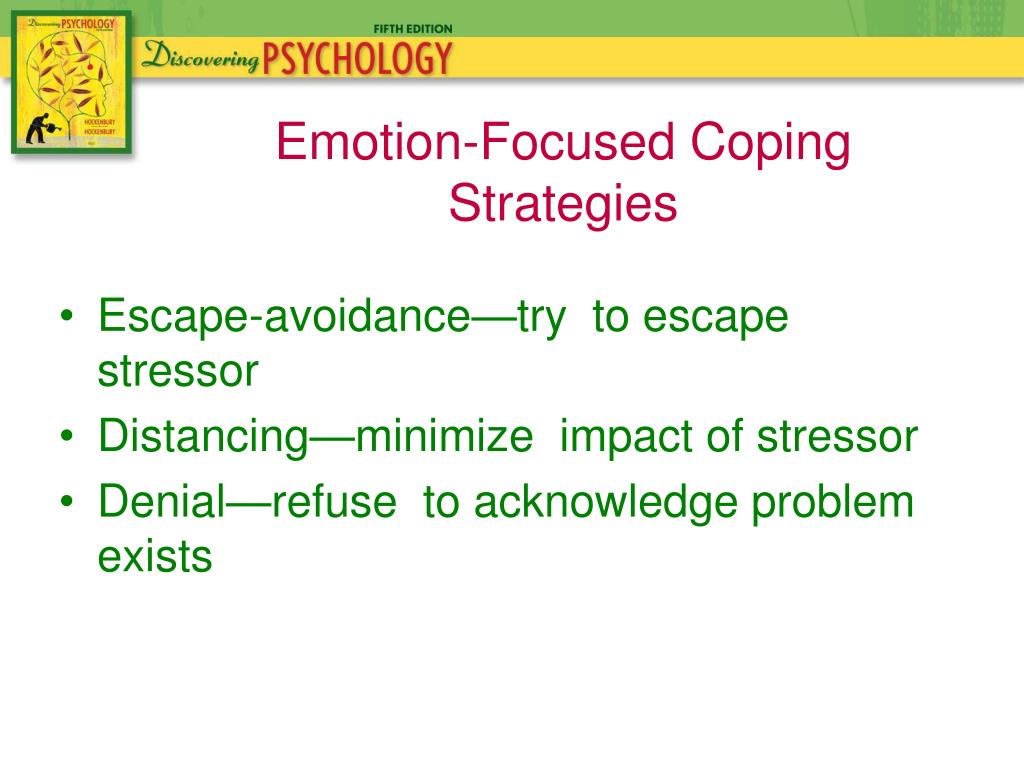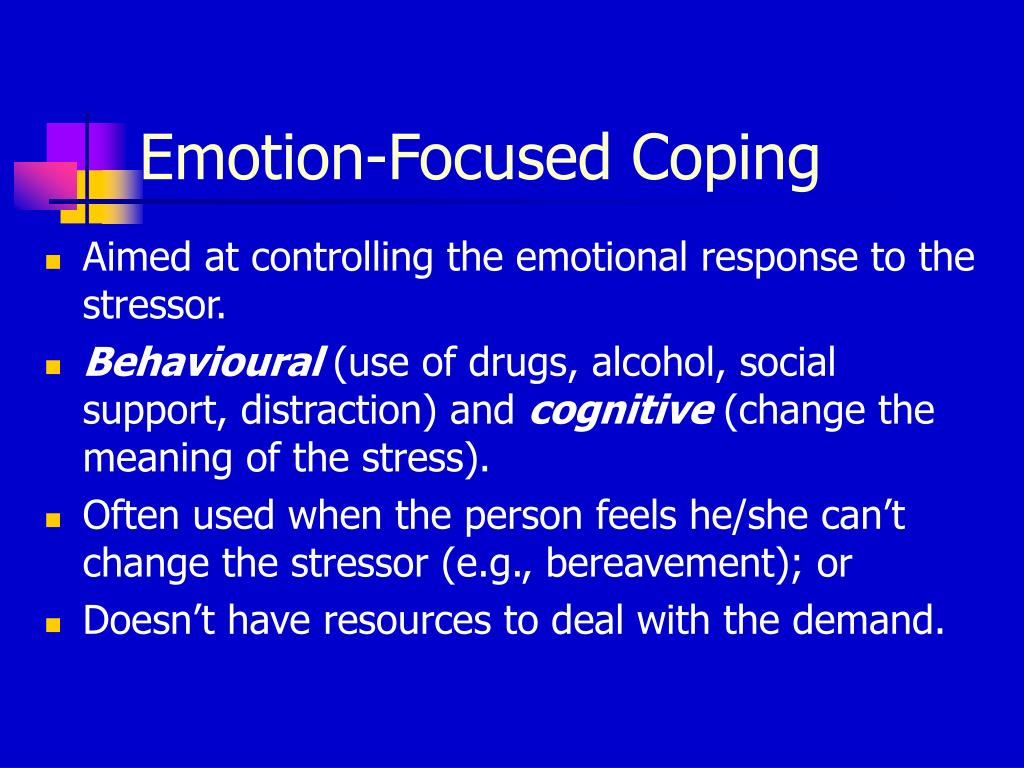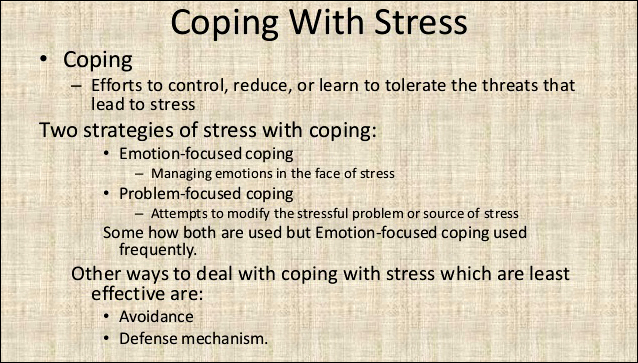
Avoidance coping refers to an individual’s engagement in cognitive, behavioral, and often maladaptive activities in an attempt to divert their attention away from the stressor and deny, minimize, or otherwise avoid dealing directly with the stressful situation. Task-focused coping takes the form of a proactive response to a stressful event it seeks an optimal resolution to the problem and is associated with a sense of control. Three main types of coping have been identified: task-focused, emotion-focused, and avoidance coping. Coping comprises the individual’s mental and behavioral attempts to manage, diminish, or endure stress.

Different coping strategies can be employed in response to stressors. The funders had no role in study design, data collection and analysis, decision to publish, or preparation of the manuscript.Ĭompeting interests: The authors have declared that no competing interests exist.Įmpirical findings suggest that the psychological reaction demonstrated in response to a stressor plays a bigger part in adaptation than the magnitude of the external stressor itself. LNK’s contribution was supported by the New National Excellence Program of The Ministry for Innovation and Technology from the source of the National Research, Development and Innovation Fund (ÚNKP-21-4-I-ELTE-215). įunding: ZD’s and GK's contribution was supported by the Hungarian National Research, Development and Innovation Office (KKP126835, FK128614). Data, materials and scripts of analysis are available in open access repositories: and. This is an open access article distributed under the terms of the Creative Commons Attribution License, which permits unrestricted use, distribution, and reproduction in any medium, provided the original author and source are credited.ĭata Availability: The study was pre-registered prior to data collection ( ). Received: MaAccepted: AugPublished: September 15, 2022Ĭopyright: © 2022 Kovács et al. PLoS ONE 17(9):Įditor: Xenia Gonda, Semmelweis University: Semmelweis Egyetem, HUNGARY


Citation: Kovács LN, Katzinger E, Yi S, Demetrovics Z, Maraz A, Kökönyei G (2022) Emotion-focused coping mediates the relationship between COVID-related distress and compulsive buying.


 0 kommentar(er)
0 kommentar(er)
